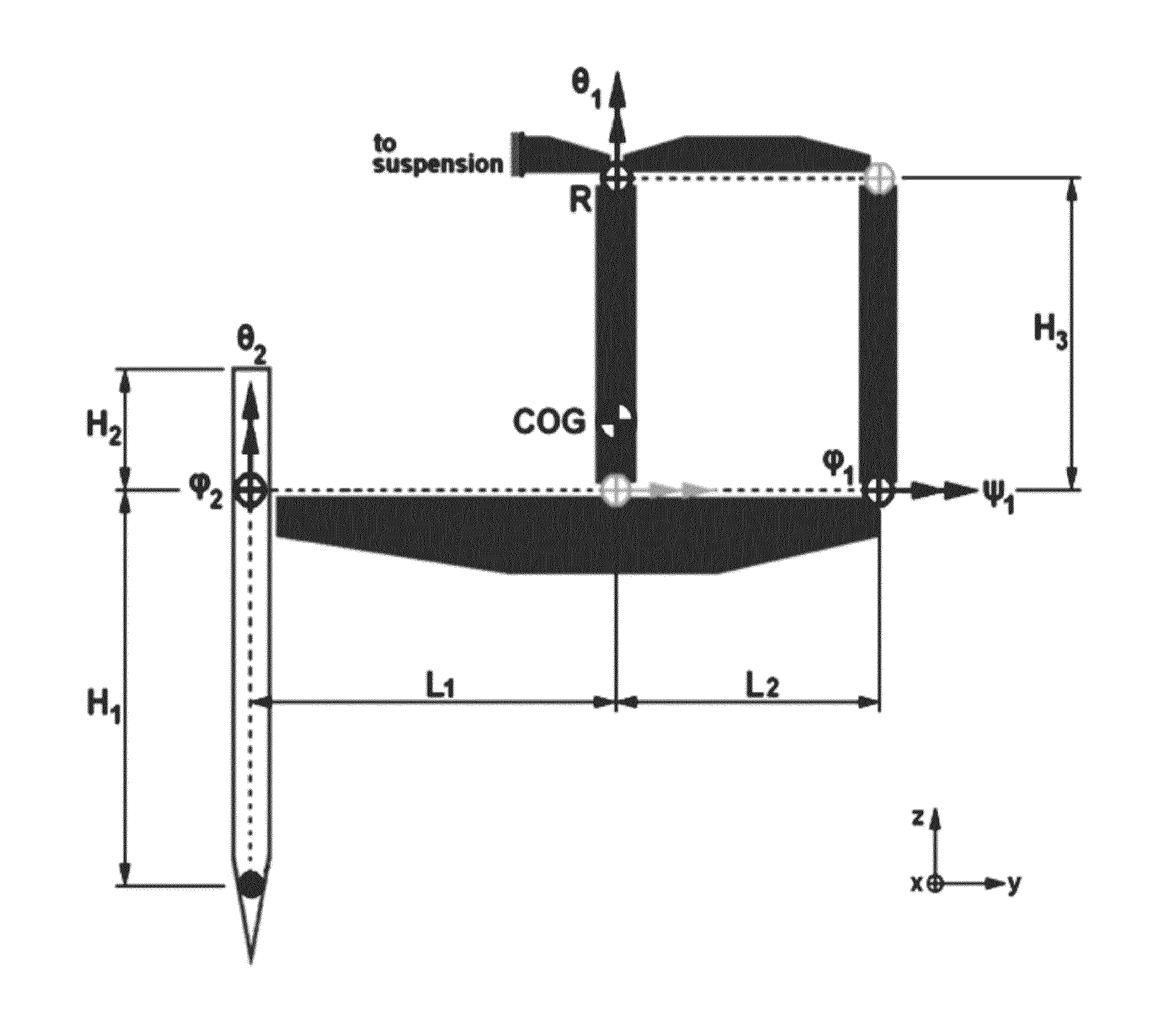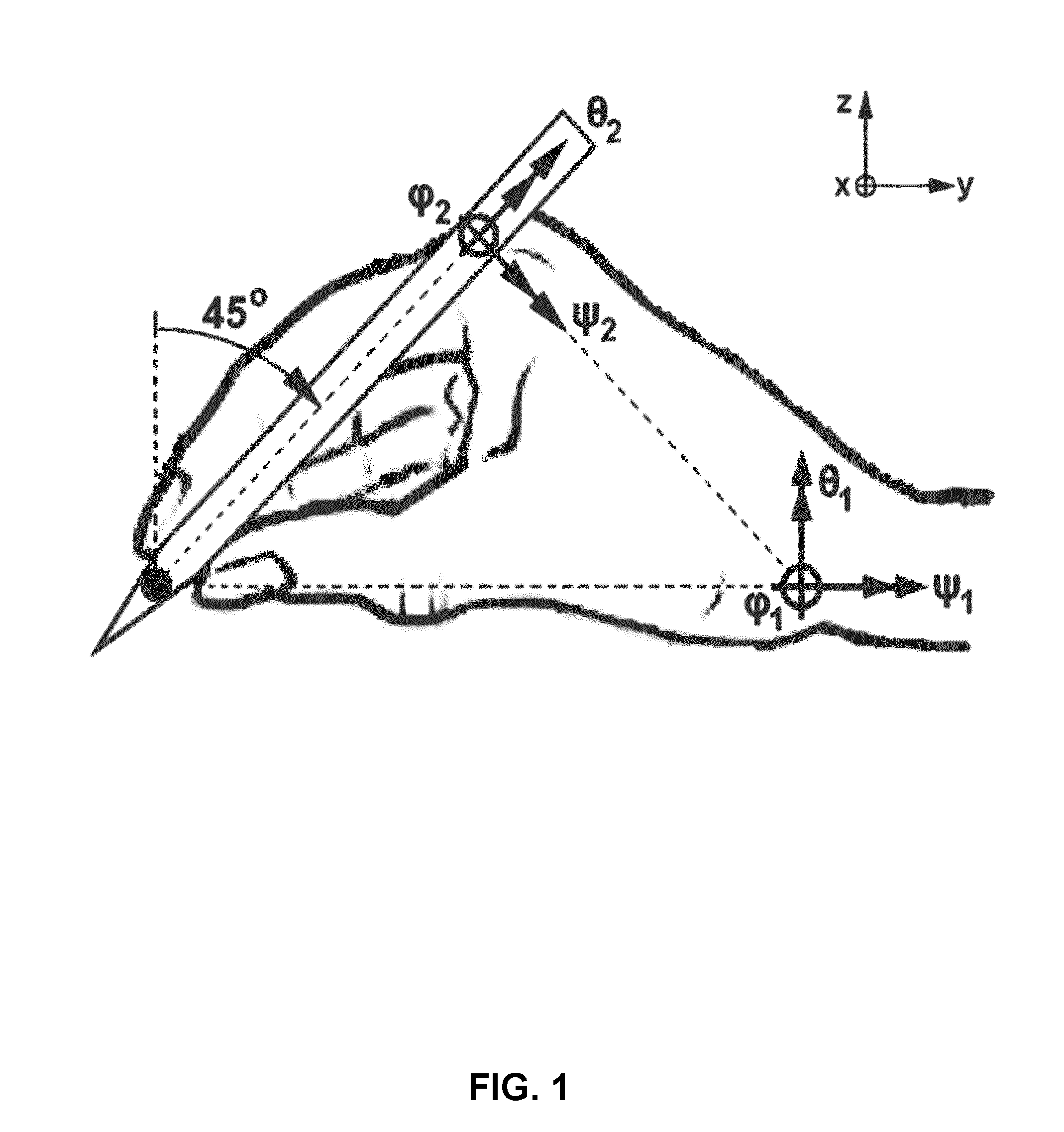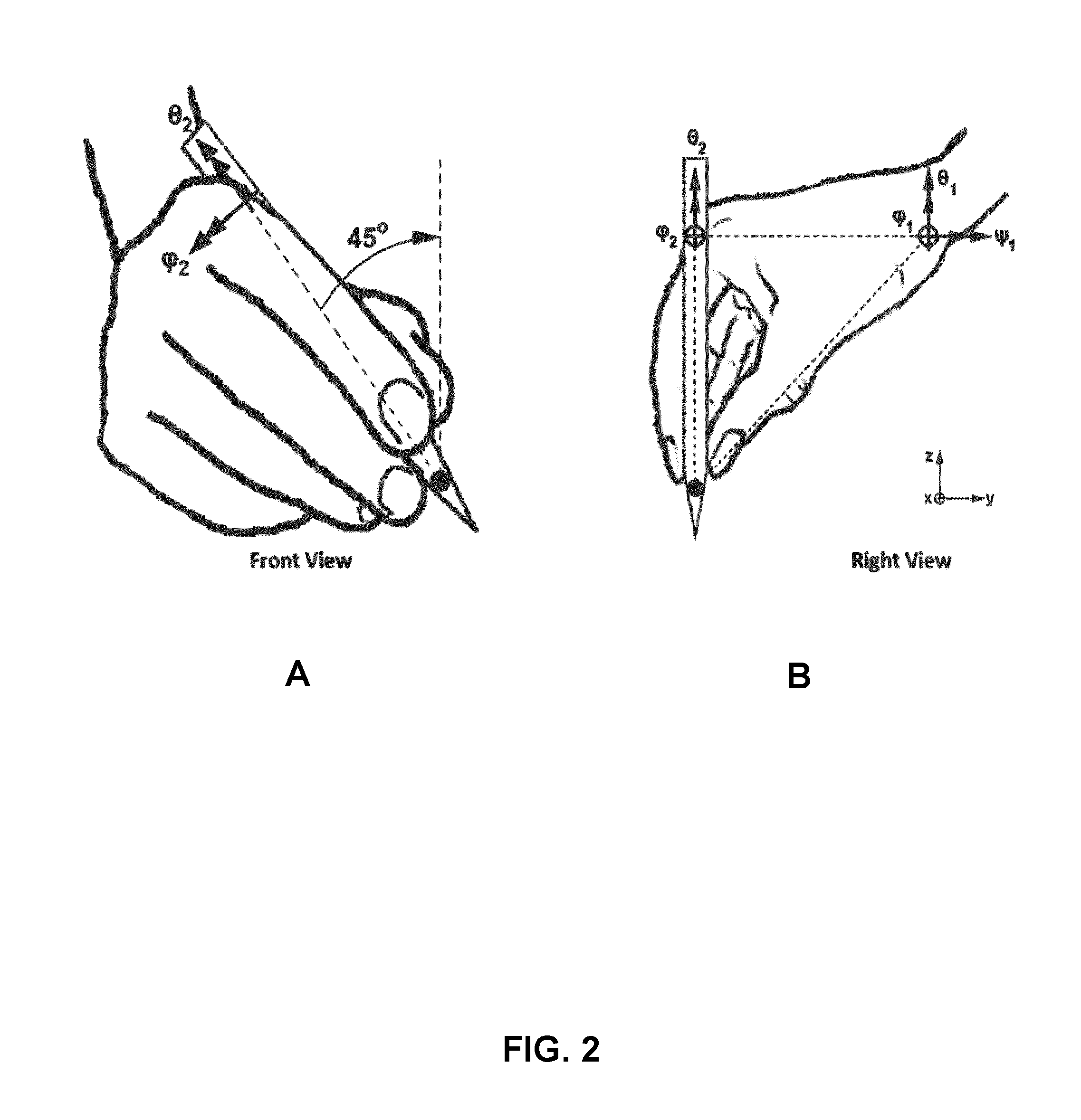Microsurgical robot system
a robot system and microsurgical technology, applied in the field of robotic systems, can solve the problems of putting the performing surgeon in a physically strained position for the duration of the procedure, accuracy close to the limit of human capability, and high concentration, so as to reduce the amount of preliminary training, reduce the amount of training, and reduce the effect of labor intensity
- Summary
- Abstract
- Description
- Claims
- Application Information
AI Technical Summary
Benefits of technology
Problems solved by technology
Method used
Image
Examples
Embodiment Construction
[0037]The range of motion and kinematics of both the master and slave design are based on the anatomy of a human hand holding a pen shaped object, with the wrist joint being a fixed point in space and the tip of the pen being the end effector (FIG. 1). It is a unique feature that makes master and slave have similar kinematics. This implies that the design has 6-DOF, being one spherical joint at the wrist and another at the base of the index finger where the pen is supported. This is the natural and recommended grip for surgeons to hold a microsurgical instrument, whereas the instrument shaft makes a 45 degree angle with the operating plane (FIG. 1).
[0038]The spherical joint at the wrist is used to make large motions with relatively low accuracy, while the spherical joint at the fingers is used to make smaller motions with high accuracy. In practice, when holding a pen the freedom of movement of the rotations of the spherical joint at the fingers is limited to a few degrees...
PUM
 Login to View More
Login to View More Abstract
Description
Claims
Application Information
 Login to View More
Login to View More - R&D
- Intellectual Property
- Life Sciences
- Materials
- Tech Scout
- Unparalleled Data Quality
- Higher Quality Content
- 60% Fewer Hallucinations
Browse by: Latest US Patents, China's latest patents, Technical Efficacy Thesaurus, Application Domain, Technology Topic, Popular Technical Reports.
© 2025 PatSnap. All rights reserved.Legal|Privacy policy|Modern Slavery Act Transparency Statement|Sitemap|About US| Contact US: help@patsnap.com



